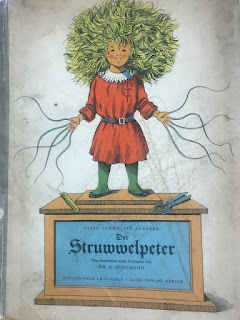Shorts are important at a film festival. They're often the draft first chapters of feature length films.
But the features - the longer films - are what many (most?) filmmakers are aiming for. So I'm going to try to highlight the features being shown at the festival. I'll try to cover those shown at the beginning and get others later.
Burt - Joe Burke
This is the opening night movie. That means people at the Festival really liked it.
Friday, Dec 5, 2025 - 7:30 PM: Opening Night Film - Beartooth
Burt, a 69-year-old street musician living with Parkinson’s, has his life turned upside down when Sammy, a wayward young man from New York, shows up claiming to be his son. Having always dreamed of being a father, Burt embraces Sammy and invites him to stay for the weekend at his home, where he lives with his grumpy landlord, Steve.
Inspired by the real-life of singer/songwriter Burt Berger, who stars in the film alongside actor Oliver Cooper; this movie blurs the line between reality and fiction with disarming authenticity. An instant laugh-out-loud-and-cry indie darling. The movie is a powerful love letter to Burt, his music, and the filmmaker’s own father, who also lives with Parkinson’s.
The LA Times headline for its review of the film: "They shot the film in seven days for $7,000"
[Editorial Comment: But the page has a pop up that requires me to agree to arbitration and a class action waiver and all their cookies. No opt outs. So the headline is all I'll see of the review because I can't agree to that. Folks, be good consumers - there are millions of websites out there. If the site opt out options are onerous, don't just agree. Delete the page and find one that's more user friendly.]
Here's an interview with the two film makers on YouTube
"A new documentary profiles two Alaska Native families as they seek justice for their murdered loved ones, diving into the generational trauma of families and communities grappling with violence, barriers within the criminal justice system and years of grief and unanswered questions.The new film, “In the Wake of Justice Delayed,” follows five years in the families’ search for justice – in two cases of murder of Native women, one more recent murder in Palmer in 2019 and one decades ago in Point Hope in 1985 – and a diving into the interconnected grief and impacts of violence in the ongoing crisis of missing and murdered Indigenous people, particularly women, in Alaska.The documentary opens with the statement: “Native women and girls experience a murder rate 10 times higher than the national average,” by the U.S. Centers for Disease Control and Prevention.'Women are not just statistics. They are not just numbers,' said Alice Quannik Glenn, a journalist and podcast host from Utgiagvik featured in the film. 'They’re real people that influence the other people around them. They influence their communities. So when one of us isn’t safe, it makes us all vulnerable.'”
“'SGT. STUBBY: AN AMERICAN HERO' — 2 stars — Voices of Logan Lerman, Helena Bonham Carter, Gerard Depardieu, Jason Ezzell; PG (war action and some thematic elements); in general releaseBased on a true story, Richard Lanni’s “Sgt. Stubby: An American Hero” follows the animated adventures of a dog that served in the U.S. Army during World War I.For a brief moment, we see a small mutt deep in the trenches in France during March 1918, then we flash back six months to the United States, where a contingency of U.S. soldiers is training to enter World War I."
F*cktoys — Annapurna Sriram
I'd note, from what I can tell, the film itself doesn't have an *.
Definitely the most provocative title in the festival.
Saturday, Dec 6 , 2025, Museum 6:30 PM
"The five of cups, the hanged man, and the sun—even if you don’t know how to read tarot, that’s fine, because Annapurna Sriram’s boldly titled Fucktoys tells us that the combination is plan ol’ bad luck. Our hero AP (Sriram herself) begins her journey in the middle of a huge swamp, where a tarot reader (iconic genderfluid bounce artist Big Freedia) tells her frankly, that she’s been cursed. Those teeth that have been falling out? Yeah, that’s black magic. Capitalism, of course, is her way out: the only way she can undo the magic is by gathering one thousand dollars to have the tarot reader lift the curse, involving a ritual slaughter of a baby lamb. If not, then bad, bad things will happen.
What else is AP to do but hop on her crystal blue moped, adorned with a sparkly unicorn, and begin to gather the money—a delightful fairytale-like starter to Sriram’s debut feature. . . "
IndieWire has a piece on this film titled, "Why the F*ck has Nobody Bought F*cktoys?" (*s in the original). Basically, the answer is she hasn't gotten the right offer yet. The last line of the article:
“I would never let a client talk down my rate,” she said. “Why would I let a distributor?”
Remaining Native — Paige Bethmann
Saturday, Dec 6 , 2025, Bear Tooth 12:00 pm
"Set at a struggling New York dive bar in the days leading up to Christmas, 2019. Its protagonist, Chet (Jefferson White), is a beleaguered bartender in a state of extended arrested development, who must balance taking care of his misanthropic, aging regulars — who have nowhere else to go, and rely on him for far more than pouring drinks — with his naive desires to muster some Christmas spirit."


























